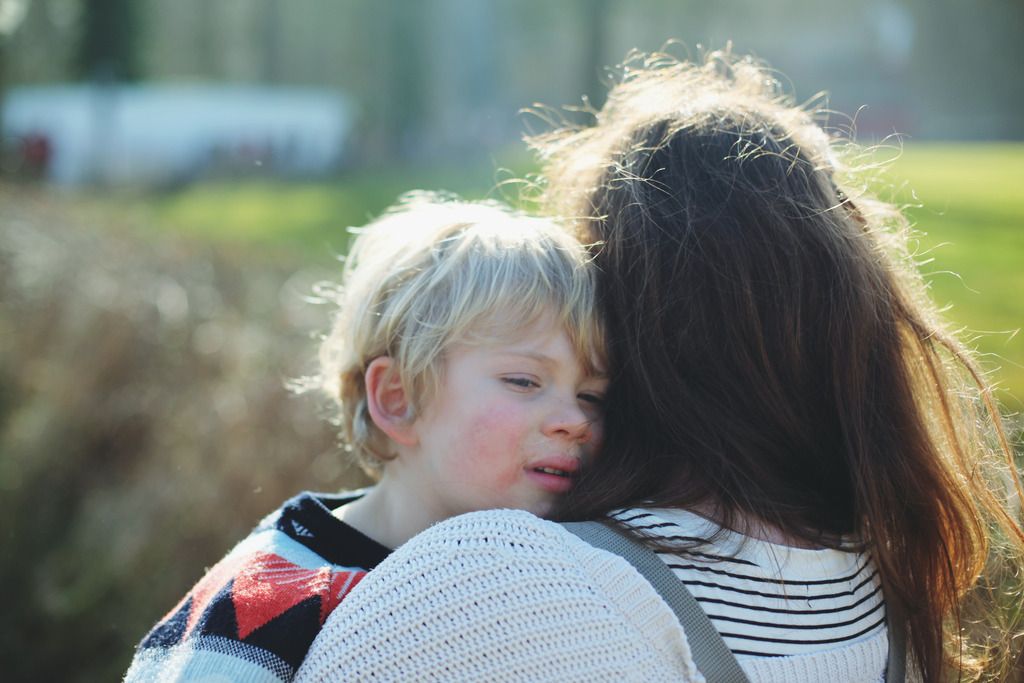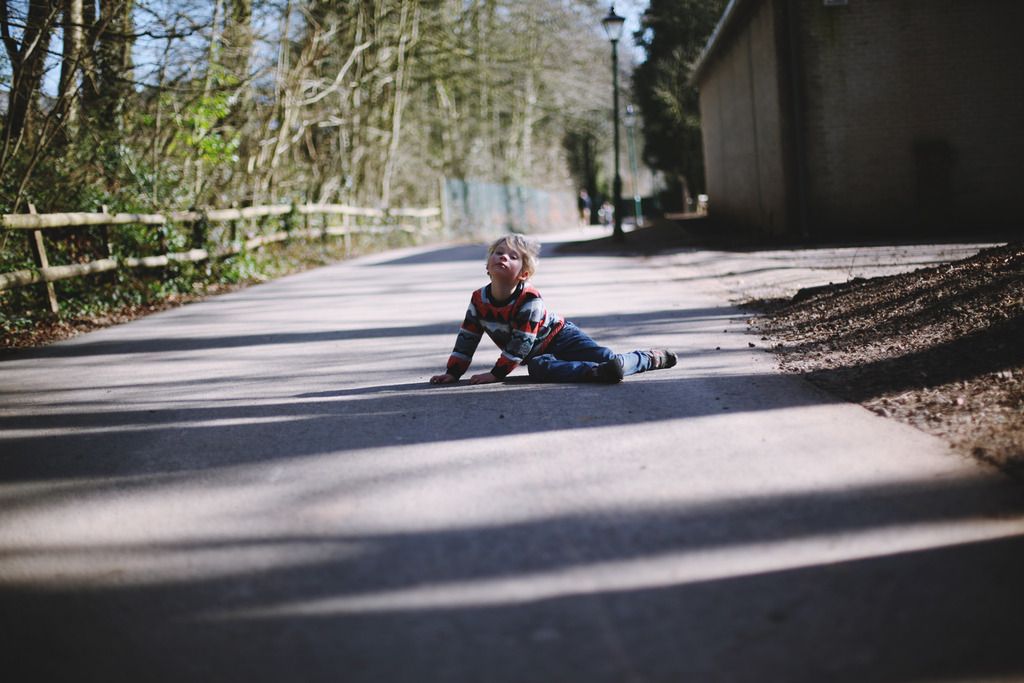Tips for managing difficult behaviour in toddlers and preschoolers

It's been quiet over here for the past week or so mainly because we've been battling illness's and trying to make the most of our time together. But I feel like I've also been drowning in a bit of behaviour related stress.
Now long time readers of this blog will know that we've had our fair share of behaviour drama with Theo, but I'm happy to say that in the last year he's come on hugely with his social behaviour towards other children, thanks to a great nursery setting and key person, a paediatrician and lots of hard work. He's shown that he can be incredibly kind, patient, fun and caring and has lots of friends as a result. We're still working on things of course, but most are just typical developmental behaviours of his age, and as much as people like to think - no child is perfect! I'm sure we don't hear half of what our little darlings get up to at nursery and even if your child isn't the one doing the hurting there's plenty of things that they may do that isn't as obvious but nonetheless not acceptable. Anyway, I'm getting sidetracked.
So we've been struggling a little bit. Since Theo turned four he's gained this new confidence and shall I say arrogance, in where he feels he knows best about EVERYTHING. We've been battling with lots of egocentric behaviour, which I know is normal at this stage, but its hard regardless! He has moments of good listening, but most of the time it seems as though he's deliberately going out of his way to defy me or do the exact opposite of what I've asked him to do. I know he's just testing boundaries, and trying to assert his own ideas and independence, but he just doesn't seem to understand that I'm saying things for a reason. It's like he needs to test everything to the limit just so he knows what that limit is.
Now I don't want to start squashing that inquisitiveness, independence and strong will, but my god it's hard to get through the day sometimes without it feeling like a battle. But its not just him who needs to remember certain ways of behaving, it's me too. I attended a workshop on behaviour today and found it really insightful and encouraging. I feel like I know all the principles of how to deal with difficult situations, but it's just remembering them and not falling back into bad habits that is important. So I thought I'd share with you some of the points I found particularly fitting!
Naming feelings: Helping your child identify their feelings and how an incident made them feel. It's important for the adult to be able to name their feelings too, in response to an action. For example if a child is cross because another child is playing with what they want: "It's ok to feel cross but we need to remember to use our words and wait our turn" or "that made me feel sad when you didn't listen/ use gentle hands" "that made me feel worried because..."
Don’t say don’t : Every time we say don't do something, you are highlighting the action you don't want them to do so that is what the child hears. For example: "don't jump on the sofa" child hears "jump on the sofa". You need to give an instruction of what you would like them to do, not what you wouldn't like them to do! Example: "We need to sit on our bottoms on the sofa, trampolines are for jumping" or "don't hit the baby" - "we need to use our gentle hands with the baby". This all helps promoting positive language instead of negative.
Give choices and consequences : If a child is resisting an instruction sometimes it is helpful to give choices, so they still feel like they are in control of their actions and making their own decisions. For example at tidy up time "would you like to tidy the cars or the blocks first" or when eating "you can eat your peas or carrots" then sometimes a consequence (that you can actually follow through on!) is a good. "If you eat your peas or carrots then you can have dessert"
Use stop instead of no : If your chid is doing something unsafe or something you don't want them to do, using the clear instruction of STOP is much more effective than saying no. Stop is also neutral and gives a clear instruction of what you would like them to listen to, whereas no can mean a great many things and could be confusing to the child. It's also good to encourage your child to use "stop" when socialising with other children.
Ignore bad behaviour : Sometimes bad behaviour is just a cry for attention, and once they know if they do something unacceptable and still get attention then, for them that tactic works. A way to encourage good behaviour is to concentrate on the other child, praising the good behaviour and if in a situation where the other child may have been hurt, first checking that they are ok. Forcing a child to instantly say sorry and focussing all your attention on the bad behaviour lacks empathy, and the sorry's are empty. It's good to show how empathy is really important and hopefully the child will make the link and understand how their actions effect others. Of course after checking the other child then it would be a good time to explain the behaviour, how it made you and the other child feel, give them a chance to name their own feelings and use positive language and encourage your child to use appropriate behaviour.
Redirecting social behaviour : When going through developmental stages children learn new skills and are constantly trying out new actions. For example pushing, running, biting and spitting may all be considered bad behaviour in a social situation, but when redirected they can be put to different uses. For example building a tower and pushing it over, running outside, biting food and spitting out toothpaste. They are all natural actions for children, they just need to be used in the right places!
Don’t label the child, label the behaviour : It's important not to label the child as bad or naughty, but instead label the behaviour which they are displaying. The same goes for good behaviour, and children need validation as to understand what exactly they did was good or bad. Instead of saying "You were a good girl today" say "I really liked the way you listened to me in the supermarket, that was good behaviour" or "that was really kind when you shared your toys". But it's important not to compare behaviour of other children "that was really good listening, unlike so and so"
Let tantrums happen : However embarrassing it may be to be the parent of a screaming child in a public place, mostly it is best just to let it run its course. Trying to reason with a child when they are extremely upset or cross is just going to escalate their mood and in turn make you lose you patience. You can reassure the child that you are there for them when they feel ready to talk about it and the way they feel. Give them space and let them come to you when they are totally ready.
Time outs : Giving a child a safe spot where they know they can go to when they feel like they need somewhere to calm down or have some space is really important. It may be just a favourite cushion, or a quiet corner. This shouldn't be forced but more encouraged and should certainly not be a 'naughty step'. Again they should be able to stay there as long as they need to, and come back when they are ready, without interruption. Sometimes the child may need a reassuring hug to calm them if sitting on their own doesn't work, or someone sitting or standing close by or holding their hand. When a child is cross or upset trying to talk to them or reason isn't going to work as their emotions and thoughts are all over the place, the same with adults! For the child, after a time they may be able to assess their feelings on their own and know when they need to take themselves out of a situation to calm down.
I'm no parenting expert, but I think we've had to work our way through a fair amount of problems and difficulties, and I feel like most of this knowledge is there, but it's just being able to remember to use it correctly! These tips are ones that I have gained from meetings and talking to health care and childcare professionals, but I do understand what works for one family may not work for everyone. It's about taking the points that speak to you and putting them into practice! I hope you find them as useful as I do!



The don't say don't part is so interesting, I've heard that before but have never seen an example of how to phrase things instead, so I'll definitely give this a try now, thank you! I find the naming emotions helps, unless they're past the point of reason. Argh, three year olds! x
ReplyDeletegreat tips, we had similar issues with our eldest when she was little... part is age and part is just them. Esp love the don't label the child
ReplyDelete